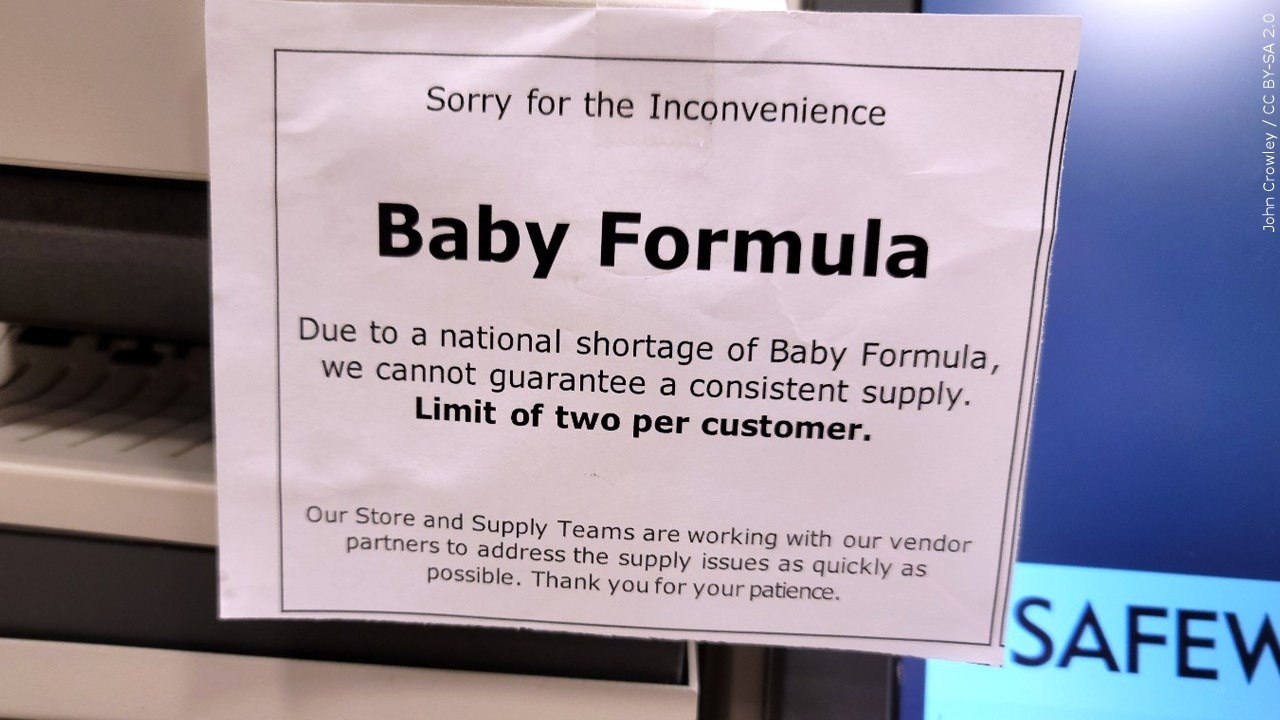Pediatricians warn of misinformation amid baby formula shortage
[anvplayer video=”5108853″ station=”998122″]
A worsening baby formula shortage is impacting families in Minnesota, and misinformation is swirling on social media, causing confusion.
“No. 1 most important thing is your babies’ health,” Emily Fagan, a St. Paul mom, said.
Fagan was on the hunt for baby formula but kept hitting dead ends.
“I remember going to Target and seeing these empty shelves and being like, ‘Oh my gosh, what am I going to do?'” she said.
Like many parents, Fagan turned to the internet to search for answers. She said she made sure she was separating fact from fiction as she gathered information. Experts are urging parents not to believe everything they read on the internet.

(John Crowley / CC BY-SA 2.0 / MGN)
A recipe for baby formula from the 1960s is swirling on social media as a solution to combat the shortage. Doctors explained that the method is dangerous.
RELATED: Minnesota doctors have advice for parents facing baby formula shortage
“The formula that you make at home is not going to be as safe and clean as formula that would be made in a factory,” Dr. Anne Valaas-Turner, an Allina Health pediatrician, said.
RELATED: EXPLAINER: What’s behind the baby formula shortage?
Valaas-Turner said homemade formula could be contaminated with bacteria that can make a baby very sick.
“It’s also possible that if your baby is getting formula that doesn’t have the right blend of nutrients, that yours maybe would be low on iron or on Vitamin C,” Dr. Valaas-Turner said.
Valaas-Turner said to combat the shortage flexibility is key. She said the majority of babies can safely drink any brand of formula.
Doctors urge parents not to make the formula last longer by cutting back.
“Some people have thought about, ‘Can I make it last longer by just making more dilute and by adding more water?’ That’s a definite no. That’s not good for babies,” Dr. Valaas-Turner said.
Pediatricians say, if you find formula in stores, only buy what you need, which is a 10- to 14-day supply at a time.